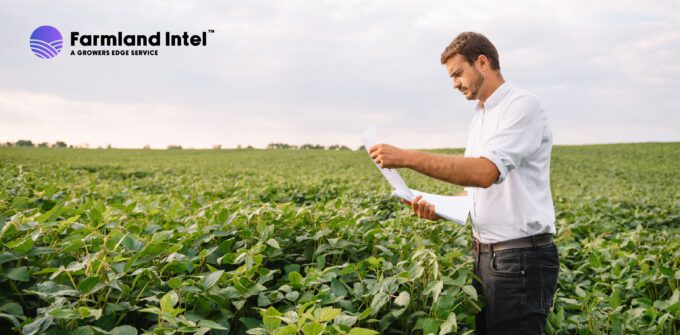Without an accurate farm land appraisal, sellers risk undervaluing (or overvaluing), and buyers risk paying too much or losing financing for the property. When negotiating a sale, securing a loan, or planning an estate, you need an accurate appraisal to get the most out of the deal.
But what does that all mean? Let’s walk through the farm land appraisal process so that you can make investment decisions backed by data.
Farm Land Appraisals 101
Farm land appraisals, an independent valuation of agricultural land, uses data on soil productivity, market trends, land use, income potential, and more to determine how much the land is worth. A professional appraiser will go through the following steps to make sure you’re making the right investment decision:
Step 1: Data Collection: This is where appraisers begin to gather information on acreage, soil, water access, drainage, crops, irrigation, or even zoning regulations.
Step 2: Land Visit: An in-person visit is often required to verify that the data collected in step one is as accurate as possible.
Step 3: Valuation Strategy Implementation: Three common valuation methods for farm land appraisals include:
- Sales Comparison Approach: Compares the farm land to similar properties.
- Income Approach: Income projections based on rent and crop production.
- Cost Approach: An estimation of the cost for improvements (barns, fencing).
After data is collected, the farm land has been visited, and a valuation strategy has been implemented, sellers or buyers will receive a formal report detailing how the value of the land was determined. This report is often shared with lenders, courts, and tax authorities as a verified assessment of value. Ultimately, it is an added layer of legal protection for such a large investment.
How To Prepare For A Farm Land Appraisal
What you need to know about the appraisal process and how you prepare for it depends on your role during the sale of the land—farming the land? Managing the land? Or are you a lender? Here’s how each role ensures farm land appraisals accurately reflect the land.
Farmers & Land Owners
To help the appraiser understand both the productivity and marketability of your land, sharing detailed data on soil maps, yield history, drainage, irrigation improvements, current leases, or CRP contracts is valuable.
Agriculture Consultants
Highlighting CPI or NCCPI scores, identifying conservation practices, and information on zoning or future land use can support your clients in understanding the value of the farmland.
Investors
Income figures based on current or projected rent as well a recent sales in the market will help you contextualize the potential of the land.
Lenders
You’re looking for credible and defensible farm land appraisals, which are easily accessible when you’re working with a certified agricultural appraiser.
When you’re looking into investing in farm land, an appraisal plays a critical role in your decision on whether or not you’re entering into a good deal. Working with a trusted appraiser is one way to get you the information you need, and when you add a data-driven tool to the process, you put yourself in the best position to find a lucrative opportunity.
Farmland Intel’s valuation tool supports the efforts of a qualified appraiser to maximize your investment and minimize risks. Learn more about our data-driven approach to investing in agricultural land.



